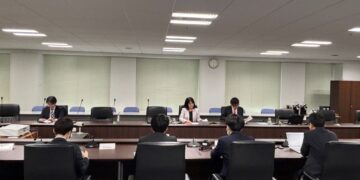
In line with its supply chain decarbonization roadmap, Nestlé Waters will be the first company in Europe to benefit from the hydrogen fuel cell solution for massified rail freight, including renewable hydrogen supply, developed by Alstom and ENGIE. It is estimated that this project will reduce emissions by 10,000 tons of CO2 equivalent per year in the long term, i.e. the reduction of 90% of its current emissions. This is the equivalent of the annual emissions of more than 30,000 round trips from Paris to Nice by car.
As a significant innovation, the new hydrogen solution will be developed from a high-powered fuel cell system that can power electric locomotives in non-electrified areas. This solution will be able to transport goods over long distances on a national and European scale.
From 2025, this freight train powered by electricity from the rail network and from hydrogen in non-electrified sectors will aim to progressively ensure the transport of VITTEL® natural mineral water between the factory located in the Vosges and its various distribution centres in France (i.e Vittel/Arles 600 kms and Vittel/Montreuil-Bellay 760 kms). The dual-mode solution will be composed by a generator wagon incorporating a high-power fuel cell system powered by renewable hydrogen and a line-electric locomotive, all connected by an electrical power cable. The generating wagon will be able to supply the locomotive with electricity without the need for any catenary.
“At Nestlé Waters, we favour rail freight whenever possible. We are constantly looking for efficient solutions to reduce the carbon impact of our supply chain. We are very proud of this project as it represents a significant investment by our railway team to find innovative solutions to answer to climate and environmental challenge. This collaboration with Alstom and ENGIE will accelerate the development of a decarbonized/carbon-free supply chain.”
Sophie Dubois, Chief Executive Officer , Nestlé Waters France.
While the French industry’s share of rail freight represents, on average, 8% to 10% of the volumes transported, Nestlé Waters in France represents nearly 45% of the volumes of the Vosges factory.
Source: Nestlé Waters






